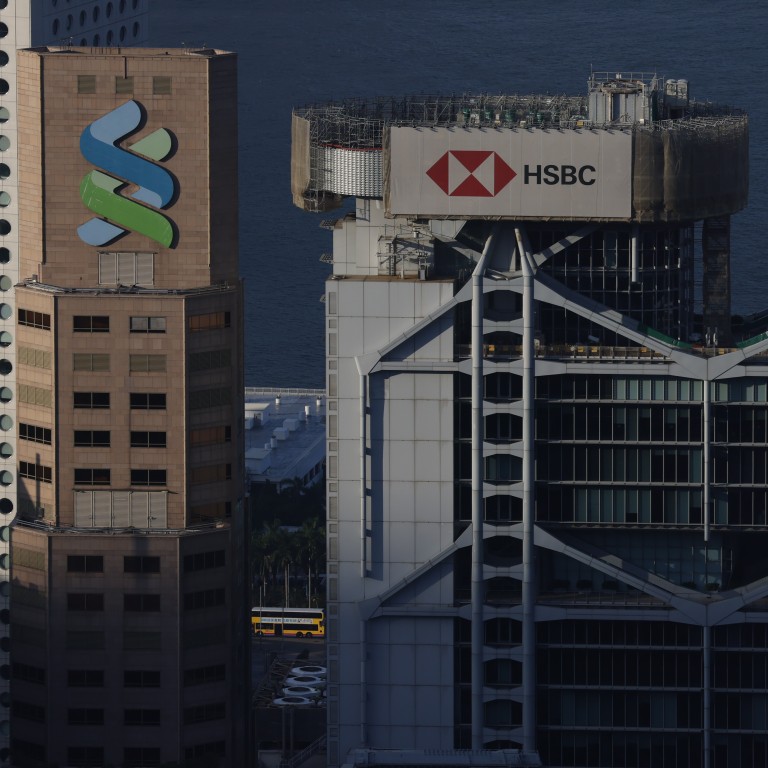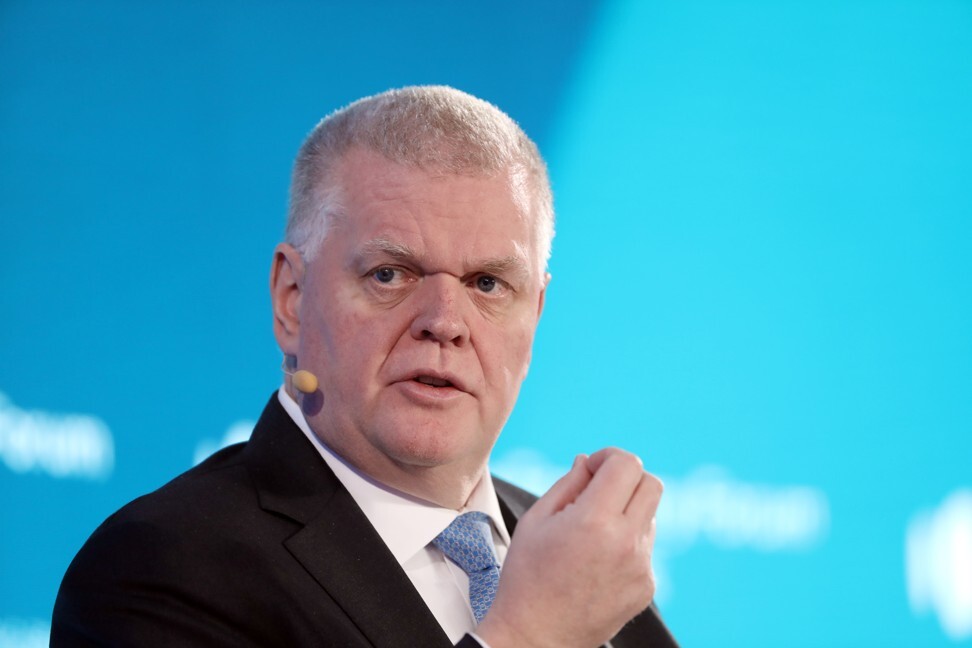
HSBC boss Noel Quinn: Complex geopolitical landscape a ‘fact of life’ for global banks
- Clients still want to be international, underscoring the need for lenders who bridge East and West, says bank’s CEO
- HSBC has an ‘obligation to comply’ with sanctions, Quinn says
There remains a need for financial institutions, such as HSBC, that can act as bridge between East and West for commerce and trade, said Quinn in a wide-ranging keynote session at the Sibos 2021 conference.
“Our clients still want to be international. They still have needs on a global basis and they’re asking us to help them with those global needs,” Quinn said. “My job is to help this organisation navigate those geopolitics, be very focused on helping our clients navigate their business model needs and remaining focused on the long term, not just the short term.”

03:41
Meng Wanzhou returns to China and Canadians freed after US court reaches deal with Huawei CFO
Financial firms are also waiting to see how Hong Kong will move forward with an anti-sanctions law first adopted by Beijing in June as an answer to the US government’s use of the American financial system – and the US dollar as the world’s dominant trade currency – to achieve political goals internationally through financial sanctions.
“Sanctions are a matter of government policies,” Quinn said on Monday when asked about sanctions generally. “We’re not consulted on that, but we have an obligation to comply.”
At the same time, HSBC is trying to help its clients navigate the challenge presented by climate – that includes helping finance the transition to carbon-light or carbon-neutral business models, he said.

“That will require a significant amount of investment. I look at this not through the risk lens first, but through the opportunity lens. This is the opportunity for us as an institution with our footprints in the emerging markets – that has to go through so much change – to be part of that change and lead that change.”
Quinn, who is serving as chairman of the Sustainable Markets Initiative’s Financial Services Taskforce, said his preference is to help fund the transition, rather than walk away or exclude clients in carbon-heavy sectors.
“I’ve given commitment about my balance sheet and how it will look in 2050,” Quinn said. “In the event that you’re having a dialogue with somebody that is reluctant to go in that direction, of course, you’ve got to reserve that option of moving away from that particular client if they’re not willing to go down the sustainability path. You don’t start there.”
Separately, Quinn said he remains keen on the journey of digital currencies, but they need to be transparent and convertible to be workable for international banks.
“You want to know who the counterparties are. You want to know who the buyer and the seller is. If there are any intermediaries, you need to understand who the intermediary is,” Quinn said. “If you can’t do that, you have a problem with financial crime compliance.”
Highly volatile asset classes, such as some cryptocurrencies, are only OK for some clients.
“You have a conduct issue if you’re promoting an asset class, i.e. a digital currency or a crypto, to a client where that volatility level is unsuitable for them,” he said. “I look at digital currencies not through a fixed lens, but I want to understand how those digital currencies are going to operate on those two attributes.”

